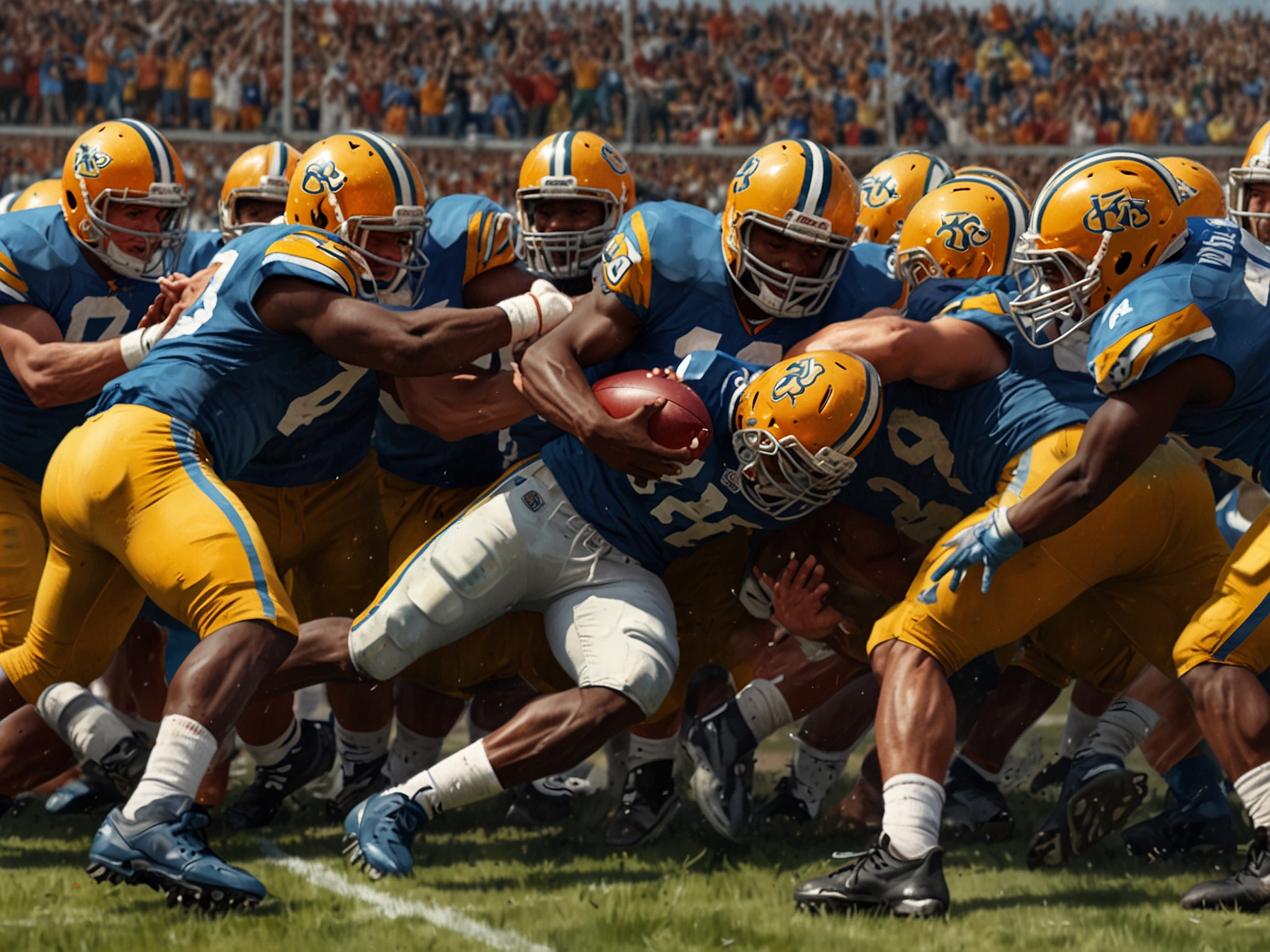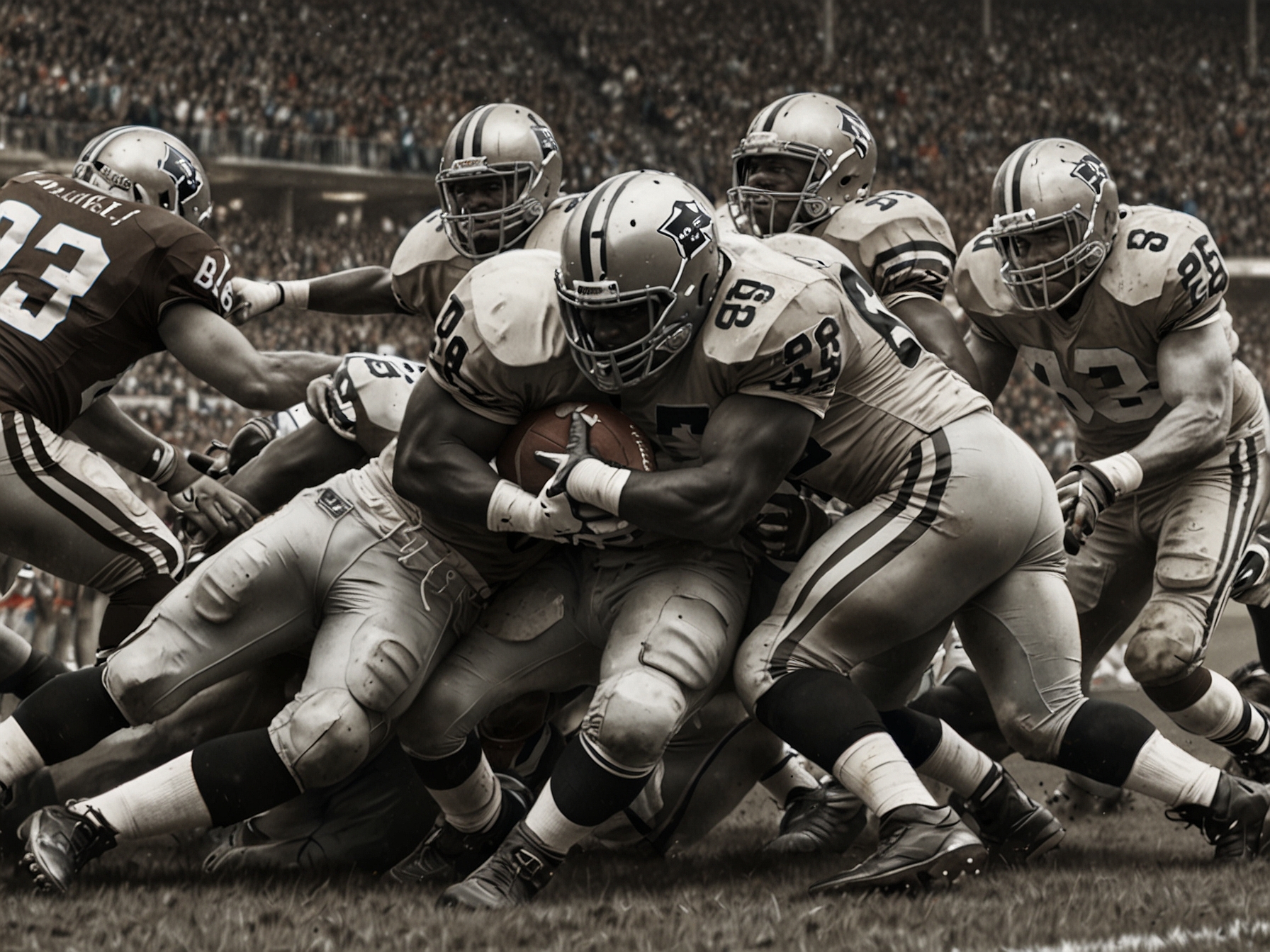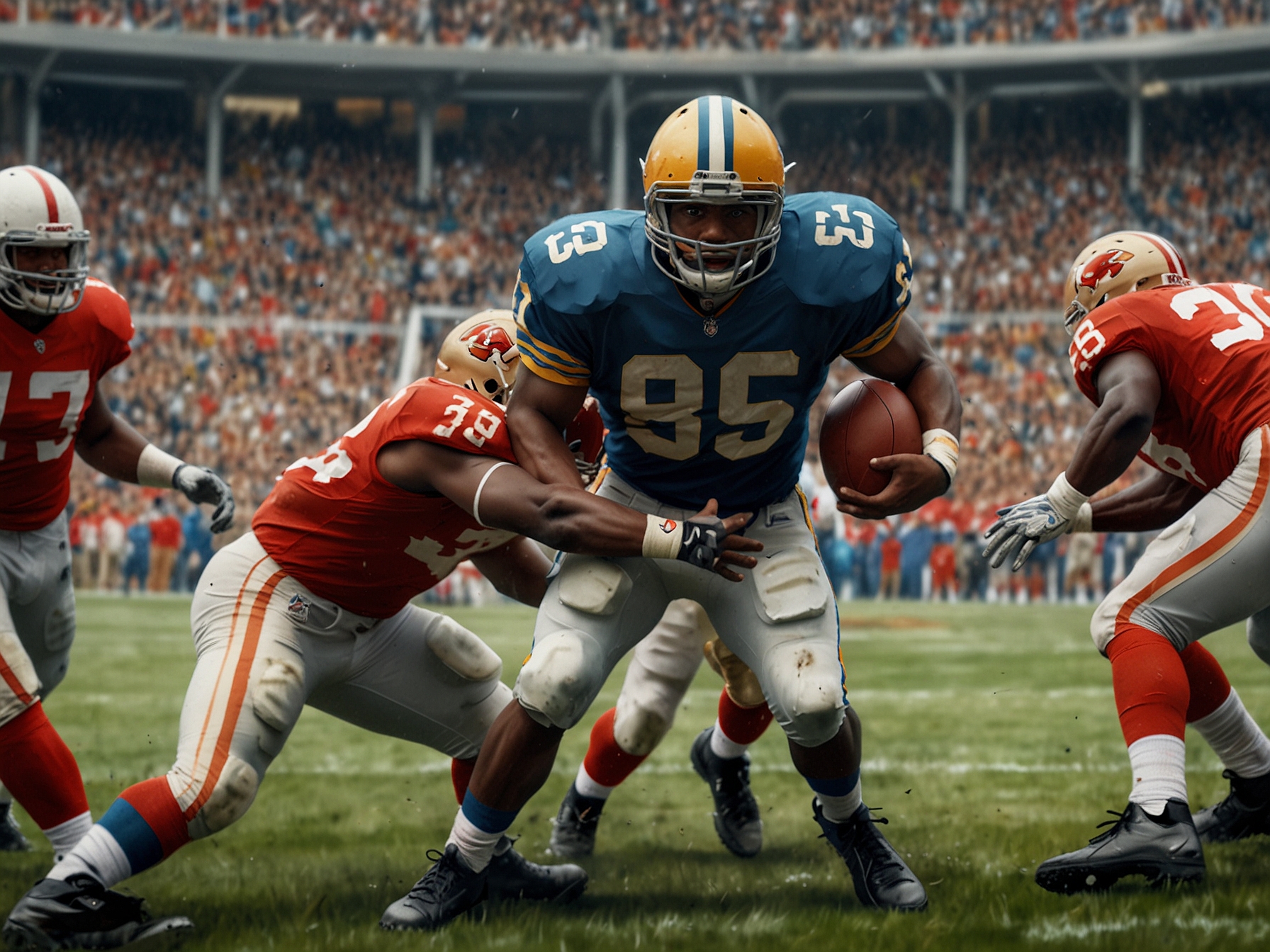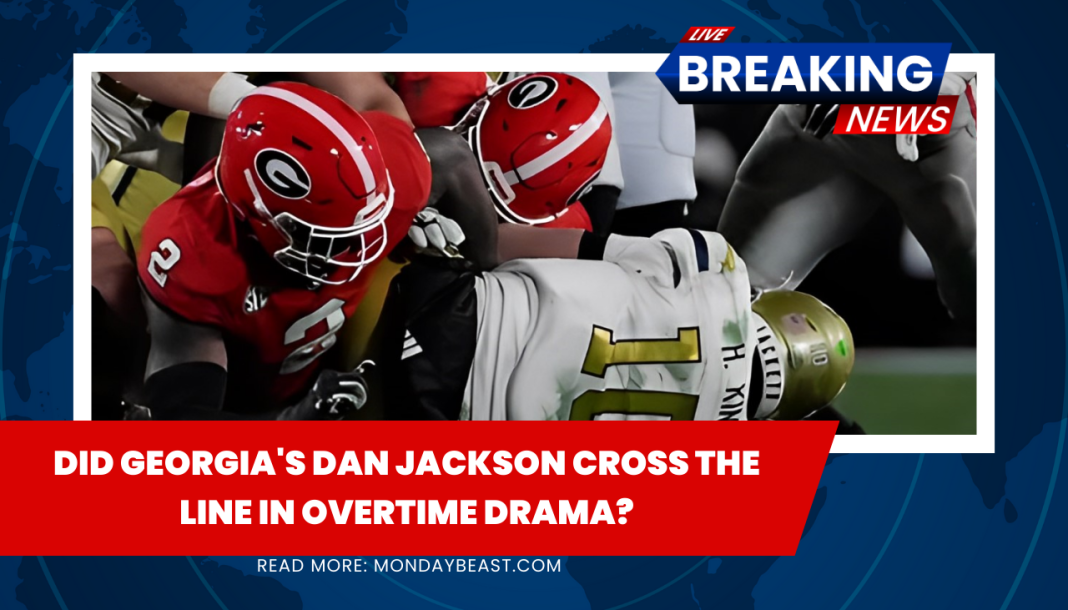In the throes of a fierce rivalry, a moment of contention arose during the climactic overtime of the Georgia vs. Georgia Tech game. With the weight of history and a potential upset hanging in the balance, many wondered: was there a severe misstep by Dan Jackson?

Late in the fourth quarter, the Georgia Tech Yellow Jackets stood poised for victory. The crowd was electric as they held a narrow 27-20 lead. They needed just one more first down to seal the deal against a powerhouse Georgia Bulldogs team. But as they faced a critical third-and-1, everything changed.
Haynes King, Georgia Tech’s quarterback, attempted a QB sneak. Yet, just as he drove forward, Dan Jackson’s fierce hit sent the ball tumbling free. Jackson’s timing was impeccable. The moment was pivotal, and yet, the ensuing fumble recovery led to dramatic changes.

Upon reviewing the play, a collective pause resonated throughout the stadium. Did Jackson’s hit warrant scrutiny for potential targeting? Many felt it did. Jackson charged at King, lowering his head, seemingly crashing into King’s facemask with the crown of his helmet. Textbook targeting? Some thought so.
Despite this, officials on the field didn’t mention targeting while confirming the fumble. How could this happen? Such oversights can lead to loud discussions. In this case, the call—or lack thereof—had colossal implications. It certainly sparked anger among Yellow Jackets fans who believed they had been wronged in a crucial moment.

Reflecting on this, one cannot help but think about the magnitude of the game’s stakes. Georgia, ranked No. 6, was fighting not just for a victory but for their reputation. A loss would have sent ripples through the College Football Playoff race. Yet how does one reconcile the emotion of the moment against the strict rules of the game?
The aftermath introduced more questions than answers. Could a missed targeting call dictate the fate of a game? Was Jackson indeed crossing a line with his hit? Such controversies can split fan bases. They present a different lens on how safety and competitiveness coexist within the sport.
In the end, the Georgia Bulldogs would triumph in a wild eight-overtime thriller, winning 44-42. Yet, the chatter lingered long after the final whistle. Discussions about player safety and the nuances of officiating are still resonating, as people process what happened on that fateful Friday night.
As opponents, bans on clean hits have continually raised eyebrows. Fans often find themselves at odds. Some want more leniency for aggressive plays, while others push for stricter penalties to protect players. It’s a balancing act in college football.
In personal reflection, I find myself caught between admiration for athletic prowess and concern for player safety. What’s the solution? Should targeting rule implementation be stricter? Or do fans have to adjust to the physicality of the game? Perhaps the answer lies in continual dialogue. As these moments unfold under the bright lights of a heated rivalry, it becomes crucial to decipher where the line really is. In sports, isn’t that the ultimate question?
As we dissect this moment further, it highlights a broader conversation about the game itself and the myriad of perspectives within it. Every fan’s view is valid, but one thing is certain — every play is now under intense scrutiny. The pivotal moments will always shape the game and its future.




